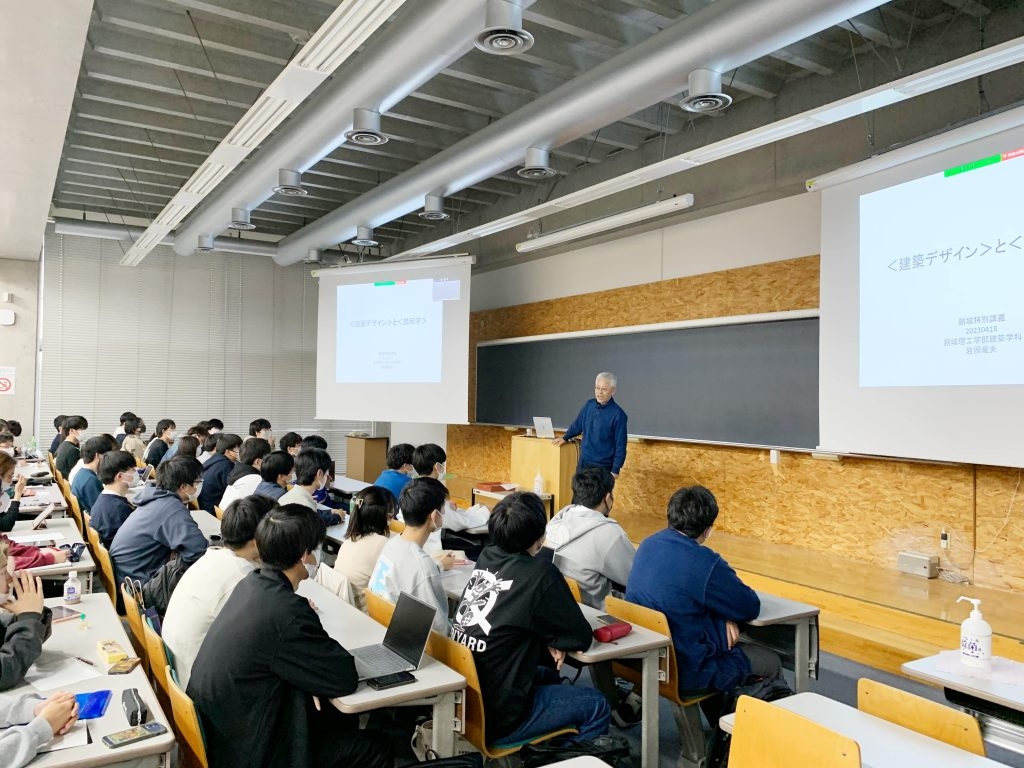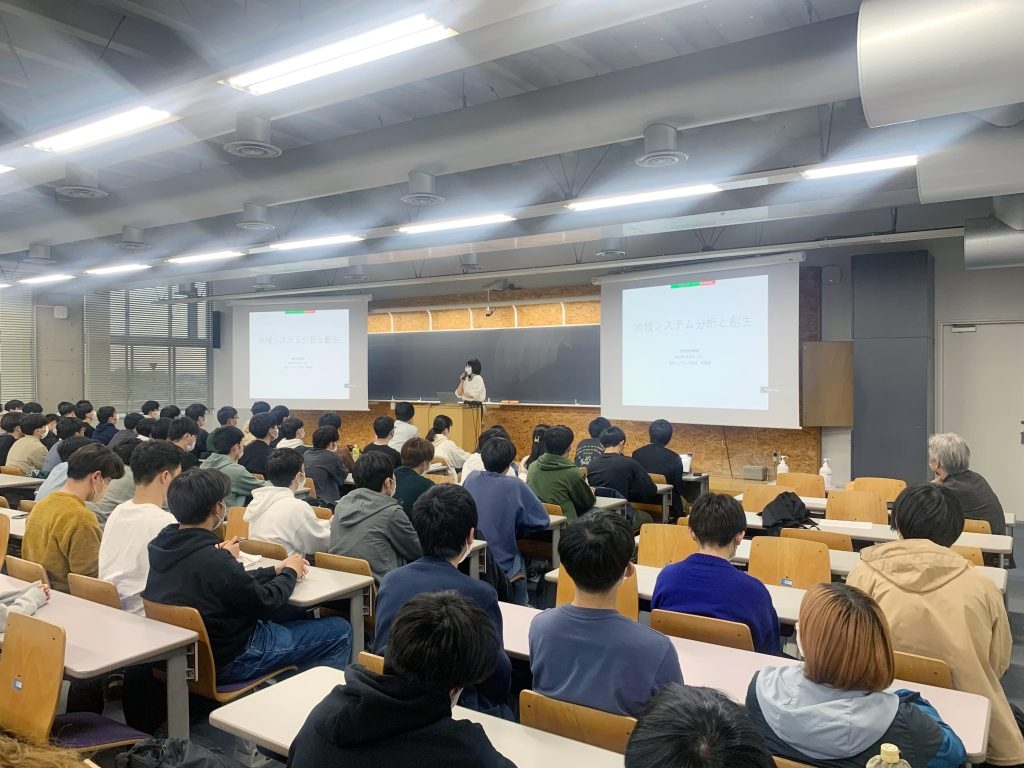In April 2023, the Faculty of Science and Technology changed its Japanese name from Riko Gakubu (faculty of science and technology) to Soiki Riko Gakubu (faculty of science and technology in new frontiers). The faculty—which seeks to fuse “science to identify the true nature of things” and “technology to apply the resulting knowledge”—has always been oriented toward research that resonates across department boundaries. To reinforce this characteristic, and also to respond to the demands of an increasingly complex and diverse society, the faculty has evolved into an organization that creates new fields by crossing existing disciplines. One distinctive feature of this is a class titled “Introduction to Frontier Science.” More than 1,200 students in the Noda Campus’s Faculty of Science and Technology and Faculty of Pharmaceutical Sciences are enrolled in it. Professor Takimoto says, “The first semester of the first year presents ‘Introduction to Frontier Science,’ which is designed to help students grasp what is meant by ‘new frontiers’ and the power of resonance. Then there is ‘Advanced Interdisciplinary Science and Technology,’ where new graduate students conduct ‘fused education and research’ in the laboratories of other departments. In between, there are steps bringing together such basic subjects as mathematics, physics, and chemistry. The intent is to form a common base of knowledge while developing an environment in which students can discuss matters in the same language, even when they come from different departments. In this way, we are gradually enhancing cross-disciplinary thinking. Introduction to Frontier Science serves as the initial entry point.”

The first half of Introduction to Frontier Science takes an omnibus format in which students learn about four different themes twice a week. Instructors from the ten undergraduate departments and eleven graduate departments of the Faculty of Science and Technology and two departments of the Faculty of Pharmaceutical Sciences, as well as alumni working in society, explain each department’s areas of expertise and cutting-edge research. In the latter half, liberal arts instructors come in to give a more panoramic perspective. The lectures cover a broad range of subjects, from mathematics and chemistry to pharmacy, architecture, mechanics, information technology, and even Chinese thought and sports science. Professor Takimoto says, “We ask faculty members and alumni to not simply explain their own specialties but rather to describe how they apply interdisciplinary approaches.” In addition to listening to the lectures, students form groups of five or six and prepare reports on one of four weekly themes. “Even though the groups are made up of students from different departments, they work together to submit a single report,” adds Professor Takimoto. “They are free to decide how they want to accomplish that task. Indeed, we believe making this decision is the first step of an integrated approach.”

When students progress from the undergraduate level to a master’s program, they have opportunities to take cross-disciplinary courses that straddle individual departments and permit participation from a wide range of fields. One can presume that preparing for such courses most likely begins at the undergraduate level. Professor Takimoto says, “We are fully aware of how difficult it is to fuse different fields. When people from dissimilar specialties start talking to each other, they don’t understand each other’s jargon. I think the original meaning of this course came from a desire to eliminate that problem.” At the end of one class, an interesting moment occurred during a Q&A session when a student asked, “How do you go about starting a joint research project?” The instructor responded, “I start by talking to everyone. I ask them what they specialize in and what kind of research they are doing.” The student probably thought, Well, I can do that. But then the instructor added, “You have to be patient. You won’t get a sense of anything if you are not.” What seems difficult is actually easy, and what seems easy is actually difficult. It certainly appears that movement toward new frontiers is underway.
■ Main research themes